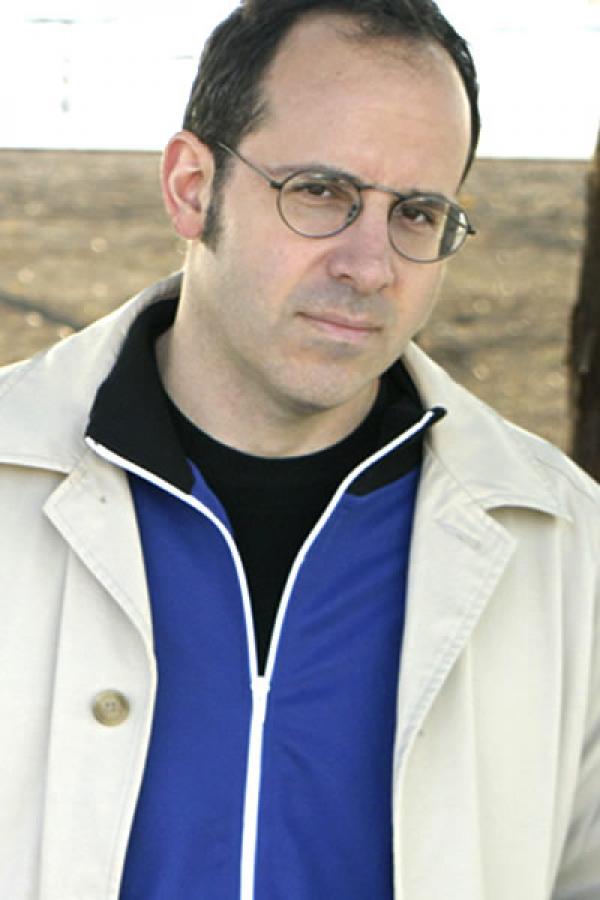Matthew Sharpe

Photo by Betsy Seder
Bio
Matthew Sharpe is the author of the novels Jamestown (Mariner Books, 2008), The Sleeping Father (Soft Skull Press, 2003), and Nothing Is Terrible (Villard, 2000), as well as the short-story collection Stories from the Tube (Villard, 1998). He has taught at Wesleyan University, Bard College, Columbia University, New College of Florida, and in various New York City public schools. His novel You Were Wrong was published by Bloomsbury in August, 2010.
Author's Statement
This is the sixth time I've applied for an NEA fellowship. Each application took me not more than five hours to complete, so I've received twenty-five thousand dollars for thirty hours' work, putting my hourly rate at $833.33, which makes being an NEA fellow by far the most lucrative gig I've ever had in my life. Thank you, United States government.
From the novel The Sleeping Father
Chris Schwartz met Frank Dial in the road. "Frank Dial" had become Chris's shorthand for joy itself; tough joy--Frank was acerbic and dark and quick. He had a word for everything, and often not a nice one; justly so, Chris thought, for the world was often not a nice place. But it was nice for Chris to have a good friend who was accurate in speech. Chris himself was not accurate or even truthful a lot of the time. He kidded a lot in a haphazard way--kidding without meaning it--and he lied a bit as well. He had a stern principle about accuracy and honesty in speech that he said he took pride in not living up to. Anyway he didn't have to live up to it because Frank Dial lived up to it for him.
In somewhere half secret inside his heart, Frank wished Chris wasn't white. It was embarrassing for a young black man like Frank to have a white boy for a best friend, but the Negro pickings were slim in Bellwether, Connecticut, where Frank was one of five blacks matriculated at The Bellwether High School for Upper Middle Class Caucasians. Nevertheless, Chris was an excellent example of what white people could achieve when they set their minds to it. Chris listened closely and got most of the allusions. Chris could keep up with the pace of the patter and the pain.
The boys set out on the journey to school along Southridge Road. They saw many wondrous phenomena. They saw small children in their jackets, they saw schoolbuses and birds, they saw houses, they saw the paint jobs on houses. High up in the sky, they saw a cloud in the shape of their math teacher. They heard a distant siren and thought of death. They spoke of all and sundry.
The town's commercial center embraced them curtly as they passed through it. They entered a deli and came out with a pair of bright green electrolyte-replenishment sports beverages that God had not created nor intended to create. They passed the magazine store where they saw, on the cover of a well-known music magazine, a photograph of two middle-aged rock stars imitating the famous pose they had struck for the same magazine 25 years earlier. Frank and Chris felt that both these rock stars and this magazine had used to mean something, but now merely made reference to the thing they used to mean without actually meaning it any more.
Frank reached into the wilderness of his backpack and came up with a frayed notebook. The words EVERYTHING IN THE WORLD were printed on the cover of the notebook in Frank's almost typographically neat hand. As the boys walked through the prosthetic heart of Bellwether, Frank flipped to the section entitled Things that look like things that you already know what they look like, stopped walking, and wrote a short description of the magazine cover. This section was getting very long. It took up more than half the notebook. That was because, in the estimation of Frank and Chris, the world was weary of itself--had trod, had trod, had trod, or whatever; now ground out shoddy reproductions of stuff it used to take pride in producing. Trees, shrubs, cats, people, clouds, and stars were now "trees," "shrubs," "cats," "people," "clouds," "stars." The world was just putting in the hours now, biding its time until retirement, when it would cast off its worldliness and return to someplace void and without form.

